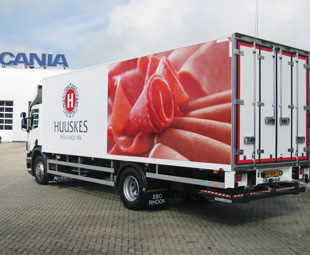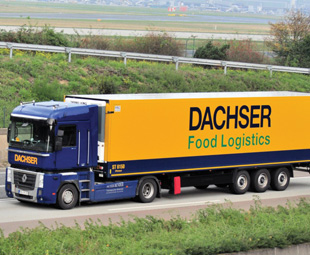Food transport whipped into shape

Maintaining the quality of products is essential in the transportation of food, especially with the introduction of the new Notice R364 draft regulation. MARISKA MORRIS reports
Food is delivered to restaurants, supermarkets and spaza shops daily. Aside from delivering food on time, companies in the food transport business are also responsible for delivering quality, safe food. To ensure food on the supermarket shelves is safe, the Department of Health has updated the Foodstuff, Cosmetics and Disinfectant Act.
A new draft regulation, Notice R364, is set to be introduced in South Africa. It will require food transport companies and vehicles to have a certificate of acceptability similar to that of a food establishment.
Venisha Bachulal, MD at Aspirata, a food auditing, testing and certification company, notes: “It is a legal requirement in this country for companies that prepare food to have a certificate of acceptability. This is provided by the local authority in the Department of Health.”
“It has now been decided that a vehicle used to transport food will also have to have a certificate of acceptability, which is a good thing. We will now be able to ensure that food is safe when it is delivered,” she adds.
Bachulal notes, for example, that food for hospitals and mines is prepared in a centralised kitchen, after which it is transported to various smaller kitchens. While the centralised kitchen might comply with food preparation standards, the smaller kitchens might not. The food also needs to be transported in a suitable vehicle. The temperature of the food needs to be kept at an acceptable level and cross-contamination needs to be prevented.
 Meat transportation has been specifically highlighted in the new regulation. Bachulal notes that meat transporters often wore dirty clothes and carried meat on their backs. The delivery vehicle would often be switched off during the delivery process to save fuel. This could affect the freshness of the meat especially in areas such as Durban where temperatures can be as high as 38oC.
Meat transportation has been specifically highlighted in the new regulation. Bachulal notes that meat transporters often wore dirty clothes and carried meat on their backs. The delivery vehicle would often be switched off during the delivery process to save fuel. This could affect the freshness of the meat especially in areas such as Durban where temperatures can be as high as 38oC.
According to Bachulal, fresh food products need to be kept at a maximum temperature of five degrees Celsius. In more developed countries, such as the United States (US), when meat is transported it is kept at a level temperature.
Bachulal explains: “In the US, the receiving point is usually flat. The truck pulls up to a docking station and docks into the receiving area. The temperature in the truck is kept at five degrees Celsius and the receiving point is no higher than five degrees. The worker at the receiving point walks into the truck and pulls out a rail with the meat and goes into the delivery location.”
The new regulation aims to introduce a similar high standard to meat transportation in South Africa. A unique addition to the local law is offal, which is often not included in legislation in First World countries. According to Bachulal, this is because offal is not as popular in many other countries as it is in South Africa.
“Offal is one of the biggest sellers in South Africa. There are many stores where you’ll find a cow, sheep or pig’s head wrapped in plastic and kept for sale,” Bachulal points out. For this reason, it was important for the transportation of offal to be included in the new regulations.
The Notice R364 states that: “No offal that has not been cleaned or scraped, or hides or related products, or any other food or materials that can contaminate the interior surface, may be transported in the vehicle used exclusively for the transportation of meat and meat products.”
Other requirements for the transportation of meat are:
• A suitable vehicle must be provided for exclusive use for the delivery of meat or meat products;
• The compartment must be lined with a suitable impervious, joint-free material that can be cleaned and disinfected;
• No tarpaulins or cloths are allowed in or on the vehicle;
• The box and the body of the vehicle must be clean when meat is loaded.
 The new regulation also requires that the person in charge of food premises must be suitably qualified, or adequately trained in accordance with the relevant Sector Education and Training Authority (SETA) requirements. Companies will need to be able to prove that adequate training has been provided.
The new regulation also requires that the person in charge of food premises must be suitably qualified, or adequately trained in accordance with the relevant Sector Education and Training Authority (SETA) requirements. Companies will need to be able to prove that adequate training has been provided.
Compliance to the new regulation remains a challenge. Bachulal notes that the Department of Health has its own challenges. She estimates that around 90 percent of food establishments in Ekurhuleni, for example, don’t have a certificate of acceptability, or an updated certificate of acceptability.
Food establishments also often don’t display their certificate of acceptability. Since the Department of Health is struggling to enforce current regulations, it is possible that this new regulation may not be implemented sufficiently.
One can only hope that large supermarkets, which undergo frequent audits, will demand a certificate of acceptability from their transport suppliers.
Published by
Focus on Transport
focusmagsa



